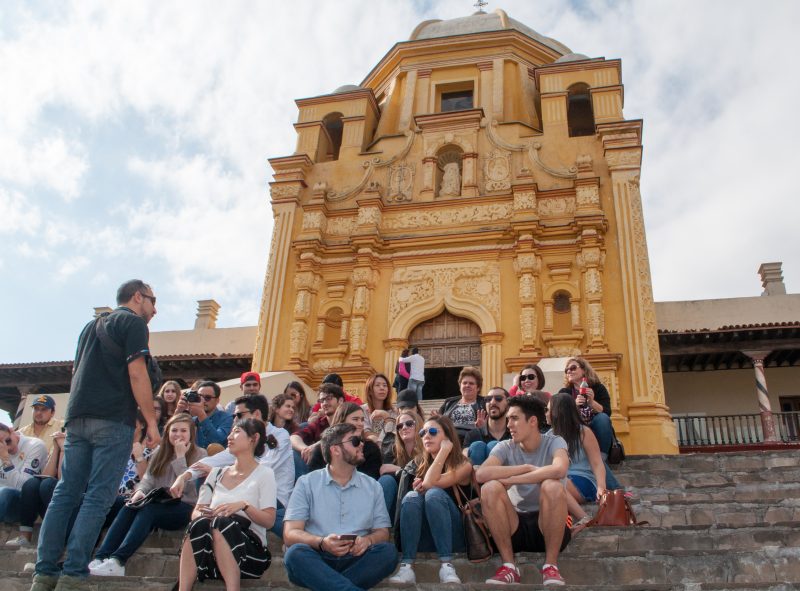Dante Suarez, associate professor of finance and decision sciences, teaches a course titled “Doing Business in Latin America.” In this class, students listen to lectures on international business laws, learn to interact with team members from other cultures and create a plan for a hypothetical business. The class is three credits, and students travel to Monterrey, Mexico to present their business proposals.
And, Suarez teaches the class completely in Spanish.
Doing Business in Latin America is a Languages Across the Curriculum (LAC) class. This means the class is taught in a foreign language and students speak to each other and their professor in a foreign language.
The LAC program was formed 24 years ago. Nanette LeCoat, associate professor of modern languages and literatures, and Alida Metcalf, history professor, created the LAC program through the National Endowment for the Humanities Focus Grant. This grant enabled them to create a new program in language teaching through collaboration with her colleagues. Metcalf no longer works at Trinity, but LeCoat still serves on the LAC committee.
“We really wanted students to feel that this was something that would help them learn about a culture and about history, and also to be professionally useful. So we wanted to offer classes that were not the traditional offerings of the language and literature program, but rather focused on topics of interest,” LeCoat said.
Since its creation, LAC has expanded immensely. Professors teach one-hour LAC courses as an overload, an additional class on top of the required classes they teach. Because of this overload, professors receive a small stipend from LAC in order to encourage the expansion of the program. They develop courses on interesting topics in order to gain support and interest from students.
Bruce Holl teaches a course called Peoples of Russia as a one-hour credit class. He has seen improvement in students after taking LAC classes.
“I think it’s popular and I like it because it’s a response to student desire to apply their language to a broader range of subjects. That’s one reason. The other reason, and I’ve done some research on this, is that it’s been shown that once you reach a certain level in language training and then you take a content course … your language improves,” Holl said.
LAC is implementing a new aspect to the program called collaborative online international learning (COIL). COIL allows professors to connect and collaborate with classes across the world. The program pairs classes across the world that are studying the same topics, and enables them to communicate through their online class. LAC pioneered this program at Trinity, becoming the first department to use COIL. Because of the program, Suarez is not only able to connect with a class in Mexico online but also to take his students to Monterrey to meet with the class in person.
“I think sometimes we can have too much of an ethnocentric approach to the world, especially being Americans. Even if you’re not in the world of business, even if you’re not going to be dealing with people from other parts of the world, you probably will be dealing with people from different cultural backgrounds in any kind of situation. I think learning another language helps you understand the different cultural backgrounds that people have and understand their actions and behaviors,” Suarez said.
Over the years, LAC has seen an increase in student interest because students often find the classes more interesting than the typical language class. Junior Vladislav Chalenko is enrolled in Holl’s Peoples of Russia class this semester. He likes the unique subject matter that LAC classes offer and appreciates the opportunity to practice his Russian.
“We read historical documents, so you kind of see how the language has changed a little bit; they sort of write differently. It’s mostly primary sources in the LAC classes. It’s almost like a history class in a way, but you also get to practice your language,” Chalenko said.
Overall, LAC classes are meant to give students the ability to practice their target language while learning a subject that interests them.
“Language is not the subject, it’s the tool,” LeCoat said.







